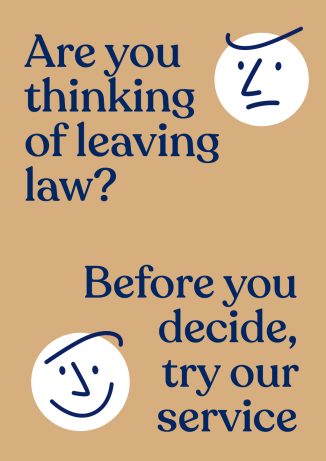At SFL, our interactions with legal firms tell us that most law firm leaders, managers, and HR departments genuinely care about their employees. They want to be good employers and they have typically thought about or acted on strategies to achieve that.
But there is a problem.
Dr Nathalie Cadieux from Québec has undertaken a significant piece of research about lawyer wellbeing, “Towards a Healthy and Sustainable Practice of Law in Canada”. [1] What she has found is that as many as 57% of lawyers are suffering psychological distress.
The Australian National Study of Mental Health and Wellbeing 2020-2022 (ANSMHW) tells us that up to 41.3% of females and up to 21% of males between the ages of 16 and 24 are suffering from anxiety. Between the ages of 25 and 34 those rates drop to 28% and 15% respectively and continue to decline with age. Overall, 42.9% of people aged 16–85 years had experienced a mental disorder at some time in their life.[2]
In any law firm with employees under the age of 34, there is likely to be a significant proportion who are anxious and/or suffering from depression, substance use issues or other disorders which the ANSMHW has identified, and at anytime there is a risk that an employee is experiencing a mental disorder.
Given the competition for university places in law and given that lawyers are known to be competitive and to suffer from perfectionism, it is possible that this perfect storm for anxiety means lawyers are over-represented in the ill-being statistics. Whether or not this conclusion can be drawn, the figures on anxiety would probably surprise most law firm employers, and the statistics raise serious questions about the obligations employers have to their employees who might be suffering psychological distress.
What is common to most distressed lawyers is that they will be doing everything possible to mask their reality and are unlikely to take up a standard Employee Assistance Program service.
The profession needs to ask if it is designing into workplaces the kind of support that might be needed for a society and a profession where psychosocial health is so challenged. Considering the requirements for Australian employers to attend to the psychosocial health of their employees, and accepting that a failure to recognise the vulnerability of an employee does not diminish this responsibility, how can leaders and managers respond appropriately?
At Support for Lawyers, we encourage all firms to consider the creation of wellness policies, created with the assistance of psychologists or other social scientists, to protect both employees and employers. It may be new thinking for employers, but a wellness policy is not effective without evaluation, so employers need to boldly embrace the concept of surveying their employees or finding other methods of evaluating how they are doing, in order to reduce risk. There is often a difference between how the employer evaluates their efforts at providing a safe workplace, and how those efforts and the safety of the workplace is perceived by employees.
At SFL we believe that prevention and early intervention strategies are vital to ensure optimal wellbeing of anyone working in law. Our service has been designed primarily with prevention in mind, as we offer regular monthly check-ins, debriefing, coaching for wellness, and counselling services.
The time is now for the profession to move from seeing wellbeing as the responsibility of the individual, and instead to see it as a collective benefit. Talking openly about mental health and wellness in the workplace has to be the goal of the profession, and at SFL it is our belief that when whole firms engage with us, wellness becomes part of “normal” in those workplace, which is protective for everyone.
[1] https://flsc.ca/wp-content/uploads/2022/10/EN_Preliminary-report_Cadieux-et-al_Universite-de-Sherbrooke_FINAL.pdf
[2] https://www.abs.gov.au/statistics/health/mental-health/national-study-mental-health-and-wellbeing/latest-release




